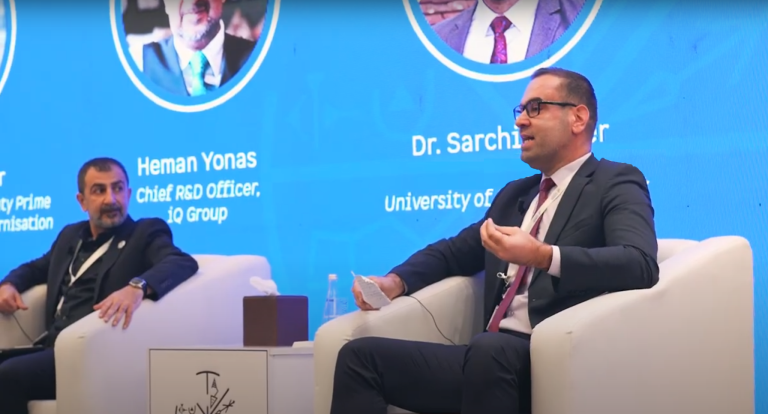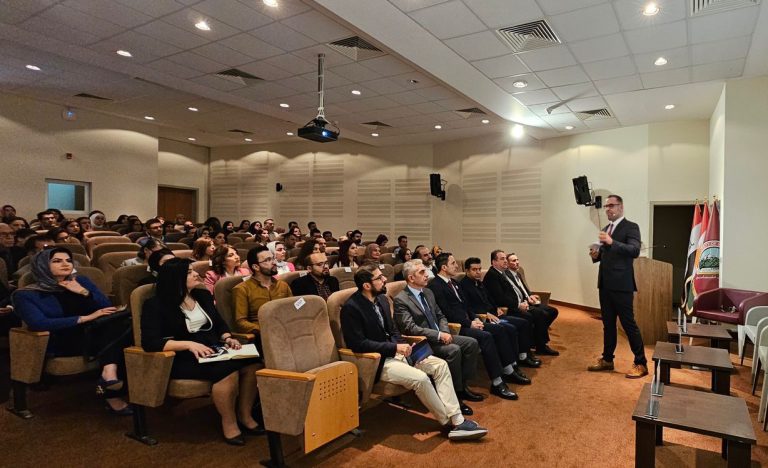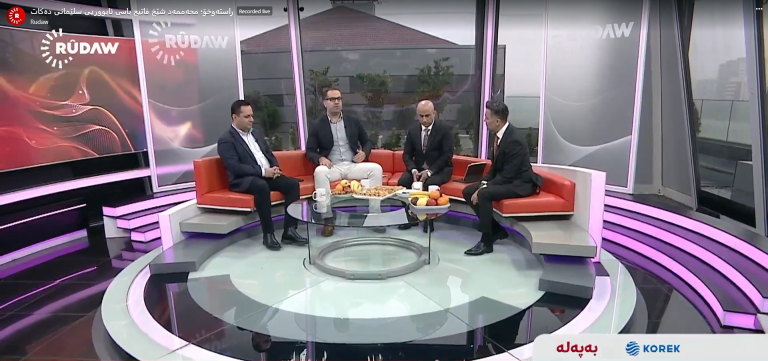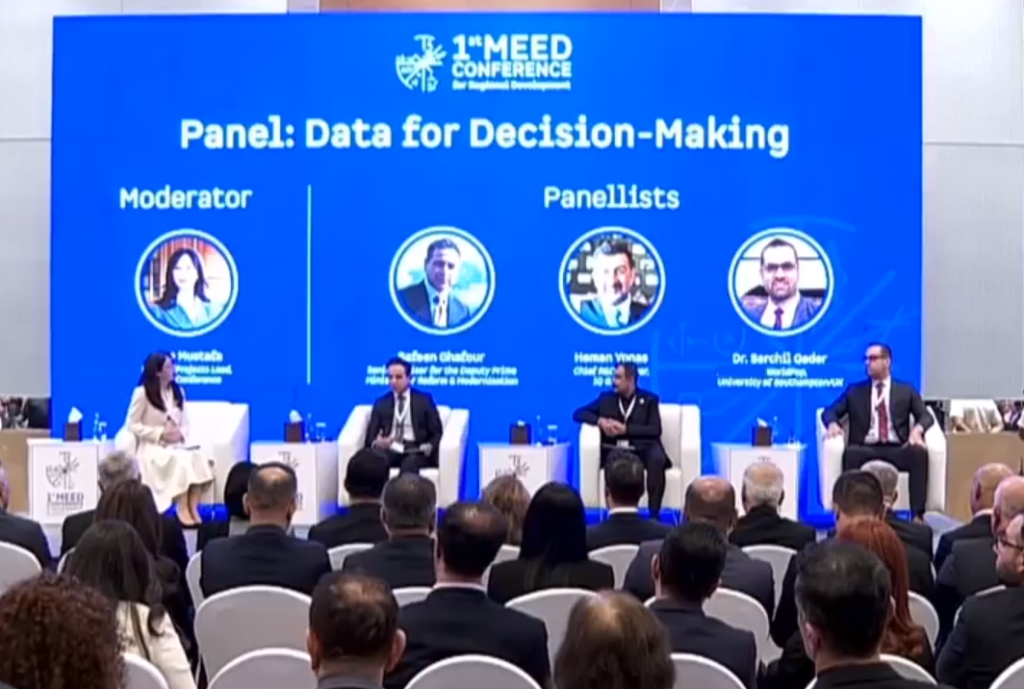Senior Research Fellow Dr Sarchil Qader recently participated in the Data for Decision-Making panel discussion at the 1st MEED Conference for Regional Development in Sulaymaniyah, Kurdistan Region of Iraq. Regional development in Iraq is compromised because the country has not conducted a census in several decades. During the debate Dr Qader explained how new satellite data combined with WorldPop datasets and expertise could help fill the current data gap and support sustainable development in the region.

The prestigious event was organised by the MEED Foundation, a research and advisory non-profit organisation based in Iraq which provides support to decision-makers in local economies. It was attended by many Iraqi and Kurdistani dignitaries including the Deputy Prime Minister of the Kurdistan Region, the First Lady of Iraq, several minsters of state, the Governor of Sulaimani, and many government and NGO officials. In her post on X (formerly Twitter) Iraqi First Lady, Shanaz Ibrahim Ahmed said she attended for “robust discussions on how data science and innovative technologies can enhance modern governance” and was impressed by presentations showcasing “smart solutions in the drive toward sustainable development”.

During his visit to the region Dr Qader also gave the keynote speech at a University of Sulaimani symposium on the topic of “Exploring the use of earth observation and geospatial information to monitor the SDGs and complement the traditional data”. After his keynote, Dr Qader joined a panel discussion that considered the challenges and opportunities in integrating Earth observation and geospatial Information in Kurdistan and Iraq. As well as senior University staff the symposium included representatives from different government sectors including the Head of IT Department at Sulaimani Governorate, the Deputy General Director of General Directors of Agriculture in Sulaimani, and the Director of Sulaimani Irrigation Directorate.

Dr Qader also participated in a live TV discussion programme to highlight the data gap in Kurdistan and Iraq, and how modern geospatial data can effectively monitor demographic and socioeconomic denominators. The conversation concluded that Iraq needs to invest more in developing the capacity to use geospatial data in order to monitor socioeconomic conditions and lessen the effects of environmental change.
In follow up discussions throughout Dr Qader’s visit, several senior figures in the region expressed interest in developing collaborations with WorldPop.
See also
- Exploring satellite datasets and advanced statistical models to estimate crop production in Iraq
- Dr Sarchil Qader: Data Revolution Will Combat Corruption (PUKMEDIA – Kurdish version)
- Report on the 1st MEED Conference for Regional Development (PUKMEDIA)
- Symposium on Monitoring the Sustainable Development Goals through Earth Observation (University of Sulaimani)
- Iraqi First Lady post on X
- Live stream of the Data for Decision-Making panel – by Kurdsat (Facebook – in Kurdish)
- Dr Qader on Rudaw TV discussion programme (Facebook – from 01:28:00 – in Kurdish)
- A report from SlemaniRT Digital Media (Facebook – in Kurdish)



